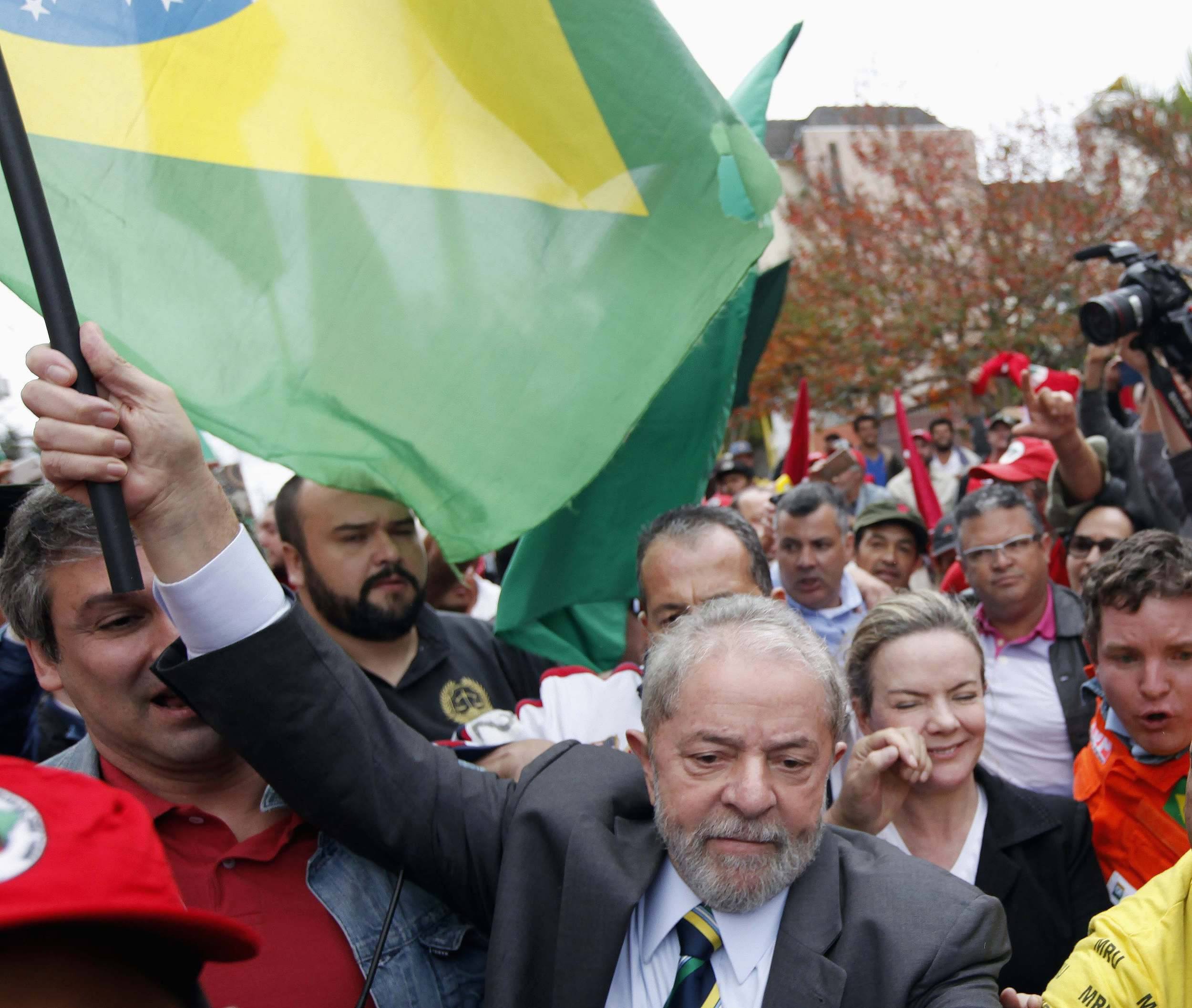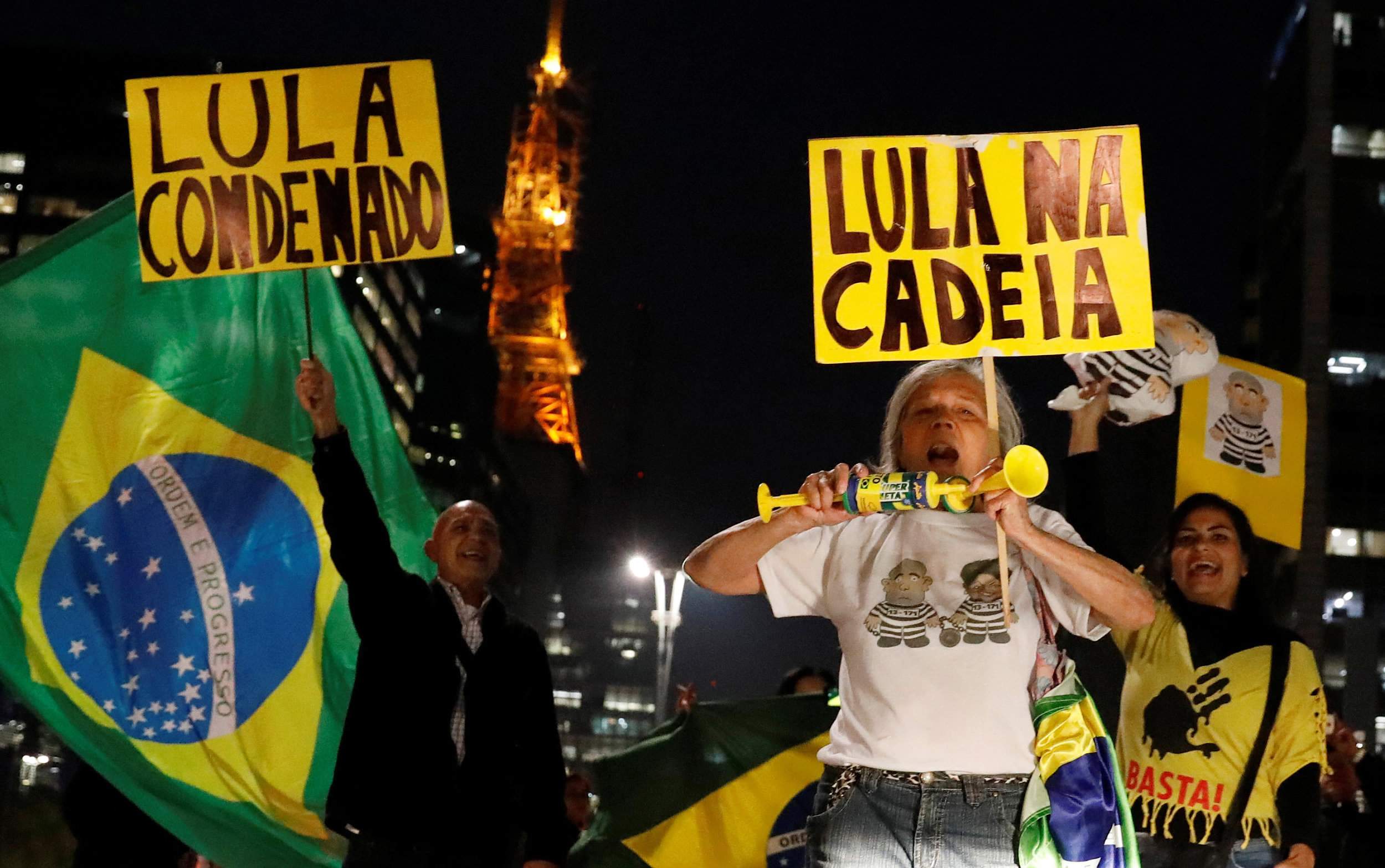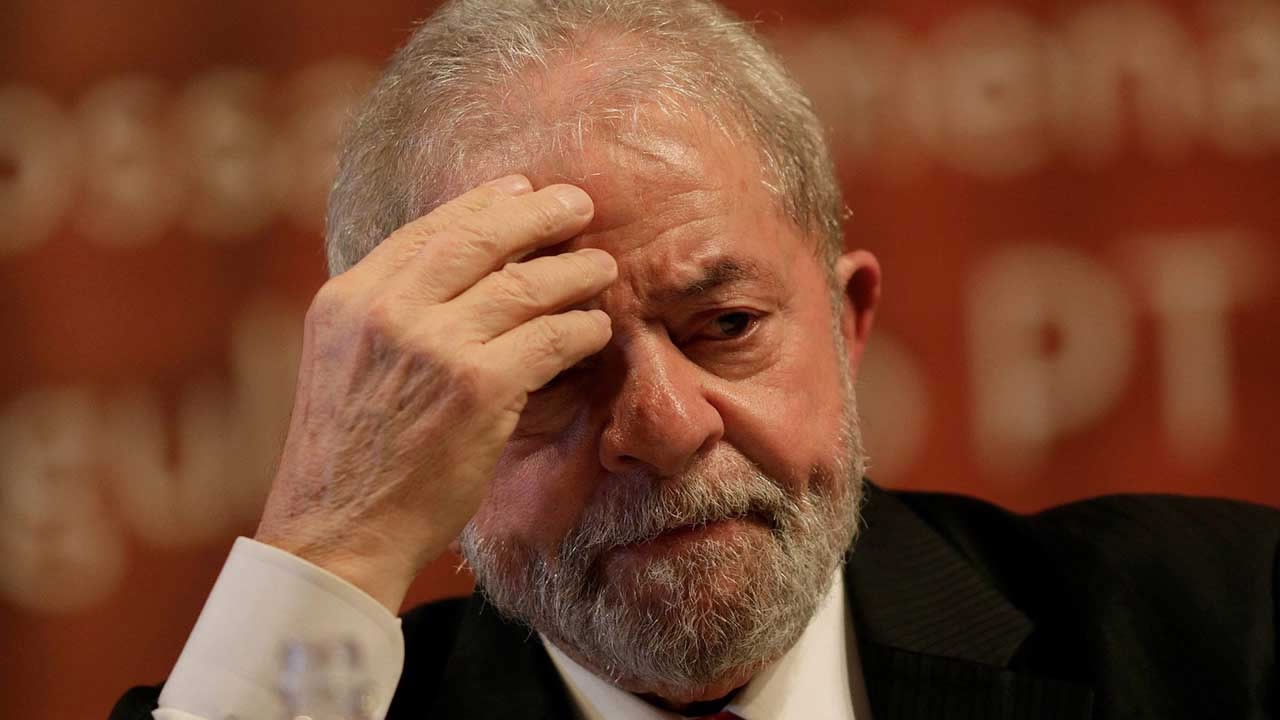By CGTN America
Former Brazilian president Luiz Inacio Lula da Silva was convicted of corruption and money laundering on Wednesday, the most high-profile conviction yet in a sweeping graft investigation that has jailed dozens of the Latin American country’s elite.
Federal Judge Sergio Moro sentenced Silva to nine and a half years in prison, but the former leader will remain free while an appeal is heard.

Former Brazilian president Luiz Inacio Lula da Silva carries a national flag as he arrives to give testimony in Curitiba, Brazil, May 10, 2017. /VCG Photo
Former Brazilian president Luiz Inacio Lula da Silva carries a national flag as he arrives to give testimony in Curitiba, Brazil, May 10, 2017. /VCG Photo
The decision had been widely expected, even by Silva’s defense team, but is still stunning: The charismatic leader left office with a high popularity and is credited with pulling millions of Brazilians out of poverty and turning Latin America’s largest nation into an important player on the world stage.
In many quarters in Brazil, the man known simply as Lula remains revered, both for his economic policies and his role in fighting for democracy during the country’s dictatorship. The 71-year-old was a front-runner for next year’s presidential elections.
The case is part of a massive corruption investigation centered on state-run oil giant Petrobras that has led to the conviction of dozens of business executives and politicians.

Former Brazilian president Luiz Inacio Lula da Silva during the inauguration of the new National Directory of the Workers' Party, in Brasilia, Brazil July 5, 2017. /VCG Photo
Former Brazilian president Luiz Inacio Lula da Silva during the inauguration of the new National Directory of the Workers' Party, in Brasilia, Brazil July 5, 2017. /VCG Photo
Silva was accused of receiving a beachfront apartment and repairs to the property as kickbacks from construction company OAS. Prosecutors also alleged OAS paid to store Silva’s belongings, but Moro dismissed that part of the case.
The former president said the charges are completely unfounded, and his defiant testimony in the case was billed as a showdown between himself and Moro. Both men are seen as national heroes by some parts of Brazilian society.
“The present conviction does not bring this judge any personal satisfaction. Quite the contrary, it is regrettable that a former president be criminally convicted,” Moro wrote in his decision. “It doesn’t matter how high you are, the law is still above you.”

People celebrate after former Brazilian president Luiz Inacio Lula da Silva was convicted on corruption charges and sentenced to nearly 10 years in prison in Sao Paulo, Brazil, July 12, 2017. /VCG Photo
People celebrate after former Brazilian president Luiz Inacio Lula da Silva was convicted on corruption charges and sentenced to nearly 10 years in prison in Sao Paulo, Brazil, July 12, 2017. /VCG Photo
Moro said he did not order Silva’s immediate arrest because the conviction of a president is such a serious matter that he felt an appeal should be heard first.
A former union leader who became the country’s first working-class president, Silva served from 2003 to 2010.
The case will be heard by a group of magistrates. If they uphold the conviction, Silva would be barred from seeking office, according to the Brazilian law. Moro also ruled that Silva should be barred from public office for 19 years.

Former Brazilian president Luiz Inacio Lula da Silva speaks after giving testimony to federal judge Sergio Moro in Curitiba, Brazil, May 10, 2017. /VCG Photo
Former Brazilian president Luiz Inacio Lula da Silva speaks after giving testimony to federal judge Sergio Moro in Curitiba, Brazil, May 10, 2017. /VCG Photo
Lawyers for Silva did not immediately respond to requests for comment, but the chairwoman of his Workers’ Party dismissed the conviction.
“Judge Moro did what the media and the anti-Lula public opinion wanted,” said Sen. Gleisi Hoffmann. “This is an embarrassing conviction, without evidence.”
Related story:






